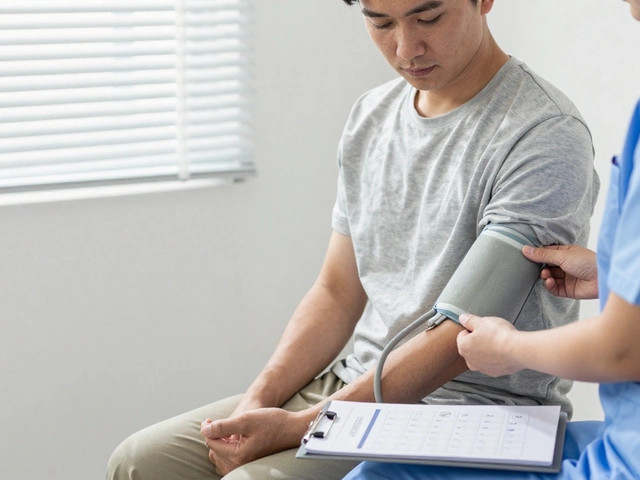The Surprising Link Between Exercise and Heart Attacks: What You Need to Know
You probably know that exercise is great for your heart health, but did you know that it could also lead to a heart attack? It sounds counterintuitive, but experts have found that there is a surprising link between exercising and heart attacks. This article will explore the potential risks associated with exercise and provide some tips for staying safe.
Why do people suffer a heart attack after going to the gym? It’s usually because they overexert themselves or push themselves too hard. Overexertion can cause an increase in blood pressure and heart rate that can lead to a heart attack. Additionally, some people have a genetic predisposition to heart attacks, so if they are pushing themselves too hard during exercise, their risk increases exponentially.
Furthermore, if you have existing heart disease, you may be at a higher risk for a heart attack after exercise. People with a history of heart disease should speak to their doctor before beginning any kind of exercise program. It’s also important to note that some medications, such as beta blockers, can put people at a higher risk for a heart attack after exercise.
So, what can you do to stay safe? Start by talking to your doctor about any heart conditions that you may have and any medications that you are taking. Your doctor can help you create an exercise plan that is safe and effective. Additionally, be sure to warm up and cool down properly before and after each workout. This will help reduce your risk of overexertion and injury.
It’s also important to listen to your body and take breaks if you need them. If you ever start to feel lightheaded or dizzy during a workout, stop immediately and rest. Finally, don’t forget to drink plenty of water throughout your workout, as this will help keep you hydrated and your body temperature regulated.
In conclusion, while exercise is important for your overall health, it can also put you at a higher risk for a heart attack. It’s important to speak to your doctor about any existing heart conditions and create an exercise plan that is tailored to your needs. Additionally, be sure to warm up and cool down properly before and after each workout and take breaks if you need them. By following these tips, you can help reduce your risk of a heart attack.
What You Should Know About Heart Attacks After Going to the Gym
Going to the gym is a great way to stay fit and healthy. Unfortunately, it can also put you at risk for a heart attack. Knowing the causes and symptoms of a heart attack and recognizing the signs can help you stay safe while working out.
Understanding the Risk Factors
The risk of a heart attack while at the gym is higher than many might think. While exercise is generally good for the heart, certain factors can increase the risk. Intensity of exercise, age, and existing medical conditions can all contribute to a higher risk. People with a family history of heart disease are especially vulnerable.
Exercising in hot, humid environments can also increase the risk. It is important to be aware of your own limitations and to not push yourself too hard. If you start to feel lightheaded or dizzy, take a break and let your body cool down. If symptoms persist, seek medical help immediately.
Recognizing the Warning Signs
It is important to be aware of the warning signs of a heart attack. Knowing the difference between a heart attack and general fatigue or muscle soreness can help you seek medical help in time. Pain or discomfort in the chest, arms, or jaw is a common symptom of a heart attack. Other warning signs can include shortness of breath, nausea, and sweating.
It is important to remember that a heart attack can happen even if you are not exerting yourself. It is possible to have a heart attack while resting or even sleeping. If you experience any of these symptoms, seek medical attention immediately. Timely medical help can save your life.
Managing Your Health
The best way to stay safe is to keep your heart healthy. Regular exercise, healthy eating habits, and quitting smoking can all help reduce your risk of a heart attack. It is also important to monitor your health and keep track of any changes in your heart rate or breathing. If you notice any unusual symptoms, seek medical help immediately.
If you have any existing medical conditions, it is important to talk to your doctor before starting an exercise program. Regular check-ups can help you stay aware of any changes in your health. With the right precautions, you can enjoy your time at the gym and stay healthy.
Examining the Reasons Why People Suffer a Heart Attack After Going to the Gym
Going to the gym to stay fit and healthy is a popular activity for many people, but it’s not without its risks. In some cases, people have suffered a heart attack after going to the gym. While this is a rare occurrence, it’s important to understand why it might happen and what you can do to prevent it.
Physical Over-Exertion
Physical over-exertion is one of the most common causes of heart attacks after going to the gym. People may push themselves too hard during a workout, leading to an increase in heart rate and blood pressure. This increase in stress on the heart can cause it to become overworked, leading to a heart attack.
Lack of Preparation
Another common cause of heart attacks after going to the gym is a lack of preparation. People who go to the gym without warming up properly or who don’t have the right equipment can put their heart under too much strain. This strain can cause the heart to become overworked and potentially lead to a heart attack.
Too Much Intensity
It’s also important to ensure that you don’t push yourself too hard when you’re at the gym. Doing too much too quickly can cause your heart rate and blood pressure to increase, leading to a heart attack. It’s important to start slowly and gradually increase the intensity of your workouts over time.
Underlying Medical Conditions
In some cases, people may suffer from an underlying medical condition that increases their risk of a heart attack. These conditions can include high cholesterol, diabetes, and high blood pressure. It’s important to be aware of any underlying medical conditions that you may have before going to the gym.
Age
Age is also a factor in the risk of a heart attack. As people get older, their risk of a heart attack increases. It’s important to be aware of your age and to make sure that you don’t push yourself too hard when you’re at the gym.
Diet
Finally, it’s important to consider your diet when you’re going to the gym. Eating unhealthy foods or not eating enough can put your heart at risk. It’s important to make sure that you’re eating a balanced diet that includes plenty of fruits, vegetables, and lean proteins.
Protecting Yourself From Heart Attacks After Exercise: What You Need to Know
Exercise is a great way to stay healthy and fit, but it can also put strain on your heart. Many people suffer a heart attack after going to the gym, so it is important to understand how to protect yourself. Here is what you need to know to stay safe while exercising.
Know Your Limits
It is important to know your limits and not push yourself too hard when exercising. If you are feeling light headed, dizzy, or nauseous, stop and take a break. It is also a good idea to ease into an exercise routine rather than jumping right in. Start with low-intensity workouts and gradually increase the intensity as you become more comfortable with the routine.
Stay Hydrated
Dehydration can lead to fatigue, dizziness, and nausea, all of which can put a strain on your heart. Make sure to drink plenty of water before, during, and after your workout to stay hydrated. You should also avoid drinking too much caffeine or alcohol before or after your workout as this can also put a strain on your heart.
Monitor Your Heart Rate
Keeping an eye on your heart rate is essential when exercising. Aim to keep your heart rate at 80-90% of your maximum heart rate, which can be calculated using your age and resting heart rate. Wear a heart rate monitor to keep track of your heart rate while exercising. If you notice your heart rate is too high, take a break and allow it to return to a normal level.
Know the Warning Signs
It is important to be aware of the warning signs of a heart attack. If you experience chest pain, nausea, dizziness, shortness of breath, pain in the arms or jaw, or a feeling of pressure in the chest, seek medical help immediately. These symptoms can be a sign of a heart attack, so it is important to get help right away.
Listen to Your Body
Finally, it is important to listen to your body and take it easy if you are feeling unwell. If you are feeling fatigued or unwell, take a break and rest. It is better to take it slow and steady rather than pushing yourself too hard and risking a heart attack.
By following these tips, you can protect yourself from a heart attack while exercising. Make sure to stay hydrated, monitor your heart rate, and know the warning signs. Most importantly, listen to your body and take it easy if you don't feel well. With the right precautions, you can stay safe and enjoy the benefits of exercise.







